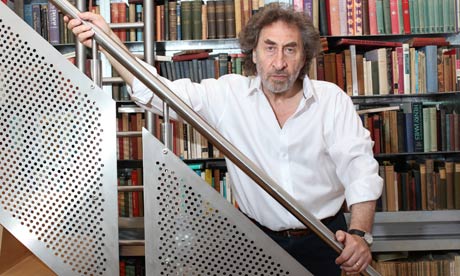
07 Aug 2010 23:29:44
This is a story of Howard Jacobson life who says that awards don’t bothered him. "You just take no notice of them, really," he says. His intense, cerebral comedies, which gnaw away at his Anglo-Jewish identity, the convolutions of the male mind and the battle of the sexes, his extravagant praise have won over the years. But this esteem has yet to be fully cashed in at award ceremonies – and the novel The Finkler Question, the new one. This story is about two old friends, one recently widowed, is a prominent contender on the Booker Prize longlist.
One obstacle to winning awards has perhaps been that his talents are predominantly comic – he admits to being irritated by the lack of respect for comedy among the literary establishment. "The novel began as a comic form," he says with some exasperation. "You've got Cervantes and Rabelais and they are wild. And while you can't really say you want every novel to be comic thereafter, I kind of do, really. And if I don't get it I feel a little cheated."
Howard Jacobson cites George Eliot that novels without comedy lose their way. Having recently been looking at his old copy of Middlemarch. "It's wonderful, but you feel embarrassed for her when she tries to be funny; she's elephantine. But it fascinates me that she knows she should be trying to be funny, and that she knows the novel is not complete without comedy. It's absurd the value that's placed on literature as a religiose form, when the novel is an anti-religiose form. It's scornful, spiteful, tough. Which is exactly what makes it sacred."
Embracing his own gifts as a comic writer took Jacobson a good long time. He was born in 1942 in Manchester, "with the bombs dropping around me . . . There's a sort of feeling that this has affected me in some way, a certain turbulence in my character," in a neighbourhood that "was half-Jewish and half-not. There would have been synagogues not far off but it was by no means a ghetto."
He can’t forgot his childhood. "It was entirely non-religious in a way I really liked and still like and miss because Jews have become more religious again. There was a feeling of 'we're Jewish, and we know we're Jewish and on important days we go to the synagogue and the boys will have a barmitzvah, and we would like you to marry in, if you wouldn't mind.'"
Our childhood is playing a big role in our life and directs us in future.
To sum it up, all readers will wait the new novel The Finkler Question's – an irony in this novel is proud champion of comedy would no doubt relish.
One obstacle to winning awards has perhaps been that his talents are predominantly comic – he admits to being irritated by the lack of respect for comedy among the literary establishment. "The novel began as a comic form," he says with some exasperation. "You've got Cervantes and Rabelais and they are wild. And while you can't really say you want every novel to be comic thereafter, I kind of do, really. And if I don't get it I feel a little cheated."
Howard Jacobson cites George Eliot that novels without comedy lose their way. Having recently been looking at his old copy of Middlemarch. "It's wonderful, but you feel embarrassed for her when she tries to be funny; she's elephantine. But it fascinates me that she knows she should be trying to be funny, and that she knows the novel is not complete without comedy. It's absurd the value that's placed on literature as a religiose form, when the novel is an anti-religiose form. It's scornful, spiteful, tough. Which is exactly what makes it sacred."
Embracing his own gifts as a comic writer took Jacobson a good long time. He was born in 1942 in Manchester, "with the bombs dropping around me . . . There's a sort of feeling that this has affected me in some way, a certain turbulence in my character," in a neighbourhood that "was half-Jewish and half-not. There would have been synagogues not far off but it was by no means a ghetto."
He can’t forgot his childhood. "It was entirely non-religious in a way I really liked and still like and miss because Jews have become more religious again. There was a feeling of 'we're Jewish, and we know we're Jewish and on important days we go to the synagogue and the boys will have a barmitzvah, and we would like you to marry in, if you wouldn't mind.'"
Our childhood is playing a big role in our life and directs us in future.
To sum it up, all readers will wait the new novel The Finkler Question's – an irony in this novel is proud champion of comedy would no doubt relish.

